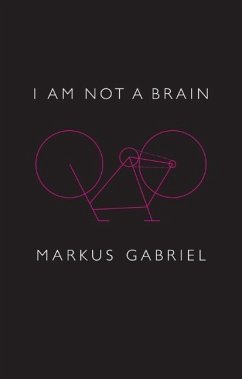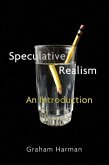Many consider the nature of human consciousness to be one of the last great unsolved mysteries. Why should the light turn on, so to speak, in human beings at all? And how is the electrical storm of neurons under our skull connected with our consciousness? Is the self only our brain's user interface, a kind of stage on which a show is performed that we cannot freely direct?
In this book, philosopher Markus Gabriel challenges an increasing trend in the sciences towards neurocentrism, a notion which rests on the assumption that the self is identical to the brain. Gabriel raises serious doubts as to whether we can know ourselves in this way. In a sharp critique of this approach, he presents a new defense of the free will and provides a timely introduction to philosophical thought about the self - all with verve, humor, and surprising insights.
Gabriel criticizes the scientific image of the world and takes us on an eclectic journey of self-reflection by way of such concepts as self, consciousness, and freedom, with the aid of Kant, Schopenhauer, and Nagel but also Dr. Who, The Walking Dead, and Fargo.
Hinweis: Dieser Artikel kann nur an eine deutsche Lieferadresse ausgeliefert werden.
In this book, philosopher Markus Gabriel challenges an increasing trend in the sciences towards neurocentrism, a notion which rests on the assumption that the self is identical to the brain. Gabriel raises serious doubts as to whether we can know ourselves in this way. In a sharp critique of this approach, he presents a new defense of the free will and provides a timely introduction to philosophical thought about the self - all with verve, humor, and surprising insights.
Gabriel criticizes the scientific image of the world and takes us on an eclectic journey of self-reflection by way of such concepts as self, consciousness, and freedom, with the aid of Kant, Schopenhauer, and Nagel but also Dr. Who, The Walking Dead, and Fargo.
Hinweis: Dieser Artikel kann nur an eine deutsche Lieferadresse ausgeliefert werden.
"Gabriel's engaging, accessible and incisive introduction to the philosophy of mind tackles the deep problems raised by both classical thinkers and modern neuroscience. Bringing the zombies and homunculi of the philosophical debates together with the Daleks and Fargo, it is as illuminating as it is enjoyable."
Dr. Sacha Golob, King's College London.
"Nowadays, 'The Brain' has taken over all the attributes with which the Modernity endowed 'the Subject.' Against this travesty, Markus Gabriel makes subjectivity as such prominent again and, by so doing, maybe, helps us make better sense of the brain as well."
Jocelyn Benoist, Université Paris 1 Panthéon-Sorbonne
"Gabriel shows up the flaws and contradictions in reductive theories of mind, based on natural science. His many-facetted argument, where the technical terms are explained in an engaging and available language, with frequent references to contemporary science fiction films and stories, culminates in a powerful vision of 21st-century humanism."
Charles Taylor, McGill University
Dr. Sacha Golob, King's College London.
"Nowadays, 'The Brain' has taken over all the attributes with which the Modernity endowed 'the Subject.' Against this travesty, Markus Gabriel makes subjectivity as such prominent again and, by so doing, maybe, helps us make better sense of the brain as well."
Jocelyn Benoist, Université Paris 1 Panthéon-Sorbonne
"Gabriel shows up the flaws and contradictions in reductive theories of mind, based on natural science. His many-facetted argument, where the technical terms are explained in an engaging and available language, with frequent references to contemporary science fiction films and stories, culminates in a powerful vision of 21st-century humanism."
Charles Taylor, McGill University









